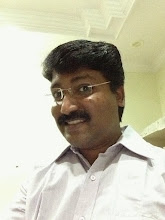Lisa, our youngest daughter, earned her master's degree before starting a career as a high school English teacher. At the time of her graduation, I doubt she was more excited than her parents were. As we entered the stadium for the commencement services, it dawned on me that after putting seven children through college and graduate studies, I'd finally be able to fund my retirement plan.
It was very hot in the concrete arena. A midday sun beat squarely in our faces. I suspected that the exercises would be long and merciless. As the graduates filed in, I was amused to see slogans taped to their tasseled caps. "Will work for food!" "Get my room ready, Mom!" Our daughter's read, "Thanks Mom and Pop." Some wore bathing suits beneath their gowns. Some blew bubbles with a pipe and soap. Most were ecstatic about finally leaving school, visibly impatient for that night's parties and for freedom and the opportunity to earn.
As the warm-up speakers droned on about politically correct issues, I wondered whether any time would remain for the main speaker. In fact, his address lasted barely ten minutes, which may have set a national record for brevity. (Winston Churchill holds the international record: thirty seconds to repeat "Never give up!" nine times.)
That main speaker was Edward James Olmos, the actor-activist who played Jaime Escalante in an inspiring movie about inner-city students called Stand and Deliver. Olmos stood up, removed his cap, and regarded the graduates. "So we're ready to party?" he asked. "Yeah, let's party!" they answered in unison. "I know, thank God it's Friday," he resumed. "But commencement means to begin, not finish. You've had a four-year sabbatical from life, and now you're ready to go out there and earn. You're only beginning Real World 101 in your education.
"One more thing before we leave," he continued. "Please never, ever work for money. Please don't just get a job. A job is something that many of you had while you worked your way through college. A job is something you do for money. But a career is something you do because you're inspired to do it. You want to do it, you love doing it, you're excited when you do it. And you'd do it even if you were paid nothing beyond food and the basics. You'd do it because it's your life."
What he was saying, which I have tried to recall and interpret in my own words is that many of you will go out and try to get the highest-paying job possible, regardless of the industry, regardless of the opportunity, regardless of the service or product the company may provide. If you chase money, it may catch you - and if it catches you, you'll forever be its slave.
By letting money pursue you but never catch you, you'll always be its master. By always doing what you love, loving what you do, delivering more than you promise, you'll always be underpaid - which is how it always should be.
For if you're paid more than you're worth, you may be restructured, reengineered, replaced, fired, declared obsolete, disposed of. Overpaid people are overdrawn in their knowledge bank account. People who are underpaid for the level and quality of the service they provide are always in demand and always ahead of the money in their knowledge and contribution. So money and opportunity are always chasing them. This is what I got out of the commencement speech that day.
Olmos concluded with a charged voice and moist eyes. "Chase your passion, not your pension! Be inspired to learn as much as you can, to find a cause that benefits humankind - and you'll be sought after for your quality of service and dedication to excellence. This passion will make you oblivious of quitting time and to the length of your workday. You'll awake every morning with the passion of pursuit, but not the pursuit of money.
"Those who do more than they're paid for are always sought for their services. Their name and work outlive them and always command the highest price. Chase your passion, not your pension!"
The graduates were stunned. Many cried with joy. I was speechless, which is rare indeed. Olmos was no actor speaking for an honorarium. He was all passion, pure and simple. "Maybe we should have taught that in a class," I heard a faculty member say.
-- Denis Waitley
Tuesday, May 18, 2010
Subscribe to:
Post Comments (Atom)



No comments:
Post a Comment